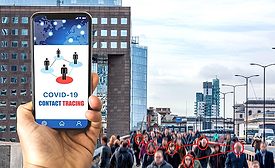Coronavirus and Business Continuity
Supply chain chaos is ramping up cyber risk
Supply chains are going digital faster than ever. It’s time to address cyber risk.
August 19, 2020
Get our new eMagazine delivered to your inbox every month.
Stay in the know on the latest enterprise risk and security industry trends.
SUBSCRIBE TODAY!Copyright ©2024. All Rights Reserved BNP Media.
Design, CMS, Hosting & Web Development :: ePublishing












